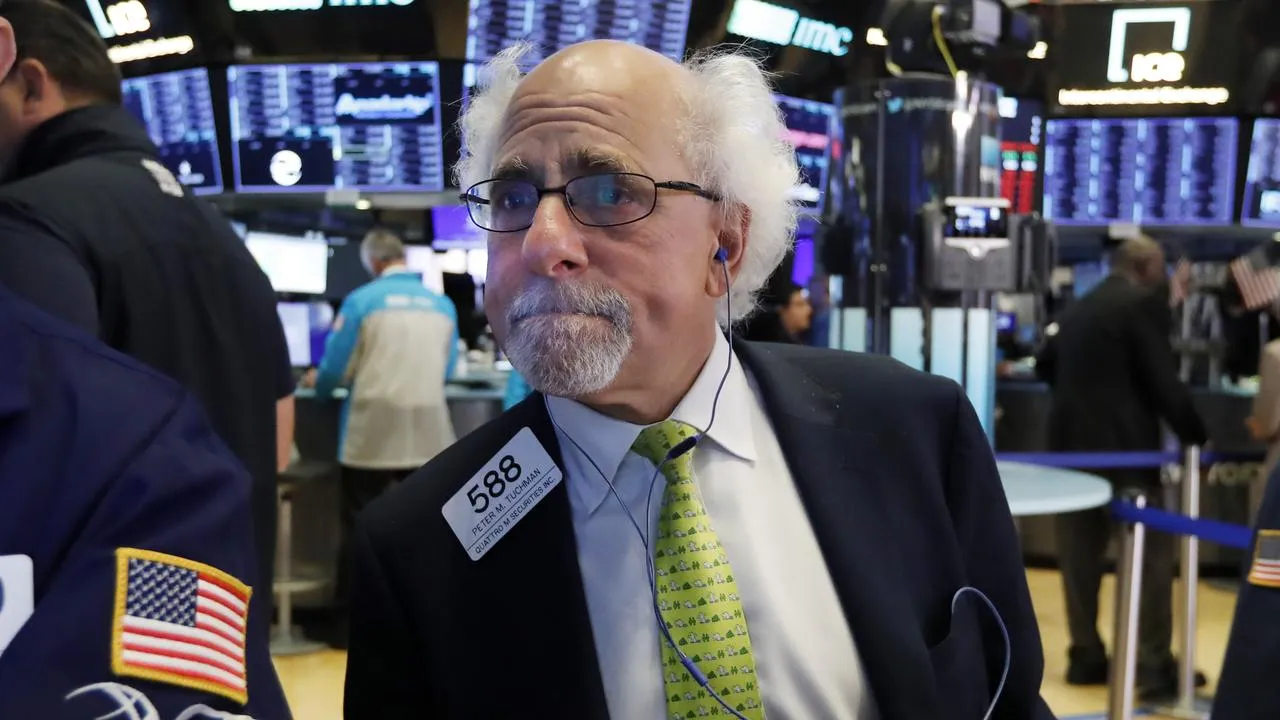Stock markets edged lower as ongoing trade tensions and scaled-back hopes for interest rate cuts fueled investor uncertainty about the sustainability of recent market gains.
Futures tied to the S&P 500 dipped by 0.1%, while in Europe, the Stoxx 600 slid 0.2%, with technology stocks bearing much of the burden. The decline came after semiconductor giant ASML Holding NV reduced its growth forecast for next year, citing increasing challenges from global trade disputes. In the auto sector, Renault SA saw its stock plunge 16% after it slashed its earnings outlook, adding to the negative sentiment.
In the bond market, U.S. Treasuries remained relatively unchanged, reflecting a wait-and-see attitude from investors. Meanwhile, Japan’s long-dated government bonds rebounded after earlier losses this week, as speculation grew about the possibility of increased fiscal spending following the country’s upcoming upper house elections. Currency markets were mostly calm, with the U.S. dollar showing little change.
Contributing to market anxiety were new signals from President Donald Trump, who hinted that new tariffs on pharmaceuticals could be imposed by the end of the month, with similar measures on semiconductors potentially on the horizon.
These remarks added to the uncertainty already swirling around U.S. trade policy. Traders responded by lowering their expectations for Federal Reserve interest rate cuts. The probability of two rate cuts this year dropped to the lowest level seen in the past month. Compounding the drama,
White House adviser Kevin Hassett has emerged as a possible candidate to succeed Jerome Powell as chair of the Federal Reserve, raising fresh questions about the future direction of U.S. monetary policy.
Investors are now bracing for new economic data expected later Wednesday, which may show that tariffs are beginning to raise the cost of goods for producers. UBS Group AG strategists expressed concern that U.S. equity investors are underestimating the long-term consequences of the trade conflict, treating it as merely a tool in negotiations rather than a persistent drag on the economy.
“The tariff-related inflation shock is beginning to surface,” warned Robin Brooks, a senior fellow at the Brookings Institution and a former chief currency strategist at Goldman Sachs. “This pressure will intensify as inventories stocked up before tariffs were implemented begin to run out.”
Over in the United Kingdom, inflation unexpectedly jumped to its highest level since early 2024, fueled mainly by climbing food prices. The surprise increase in consumer prices prompted a reevaluation of the Bank of England’s policy path.
While a quarter-point rate cut is still anticipated in August, expectations for further easing were scaled back. British government bond yields, or gilts, moved lower in response, and the British pound fluctuated as traders reassessed their positions.
Market sentiment also took a hit from a weak start to second-quarter earnings season. Major U.S. banks began reporting results on Tuesday, but the figures failed to impress investors.
Attention is now shifting to fresh earnings from Bank of America, Goldman Sachs, and Morgan Stanley, which are due to be released later today. These results could offer more insight into how Wall Street firms are navigating the uncertain economic environment.
Some investors, particularly institutional players, are turning more cautious. “Professional investors aren’t as confident as retail traders that markets will continue their upward trajectory,” said Jacopo Ceccatelli, managing director at Finint Private Bank. “We’re currently scaling back our positions.”
In summary, financial markets are being weighed down by a combination of deteriorating trade relations, reduced optimism for aggressive Federal Reserve intervention, and mixed corporate earnings. While investors remain on alert for signs of economic resilience, concerns are mounting that preexisting optimism may have gotten ahead of the fundamentals.
With further tariff measures looming and inflationary pressures starting to emerge, the path forward for global markets appears increasingly complex and uncertain.
As investors digest upcoming economic data and corporate earnings, the question remains whether recent highs can be sustained—or if mounting headwinds will spark a broader market pullback. The current backdrop underscores the fragile balance between growth expectations and geopolitical risks that continues to define today’s financial landscape.

Subscribe to our newsletter!
As a leading independent research provider, TradeAlgo keeps you connected from anywhere.








